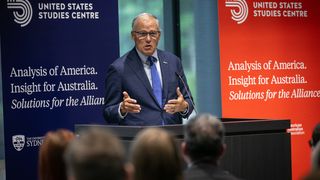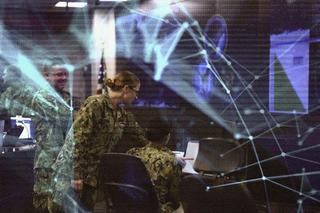On Monday, 6 November, the United States Studies Centre (USSC) and the Net Zero Initiative at the University of Sydney co-hosted an exclusive event with Washington Governor Jay Inslee to discuss technological solutions to climate change.
The event featured a keynote address from Governor Inslee and two panels moderated by USSC Non-Resident Senior Fellow and former Australian Ambassador for Climate Change Meg McDonald. The panel topics and panelists included:
- Australia’s climate policy ecosystem
- Martijn Wilder AM | Founder and CEO, Pollination
- Monique Miller | Chief Investment Officer, Clean Energy Finance Corporation
- Tim Jordan | Commissioner, Australian Energy Market Commission

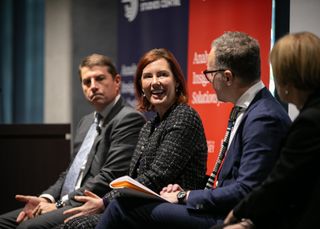
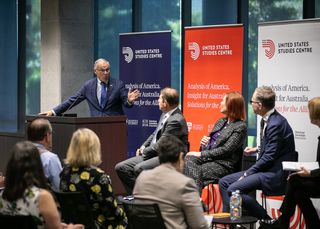
- Business development pathways in and between the United States and Australia
- Kara Frederick | Managing Partner and Founder, Jekara Group
- Tim Stock | Director of Hydrogen and Clean Energy, NSW Office of Energy and Climate Change
- Michelle Detweiller | Executive Director, Renewable Hydrogen Alliance
- Jamie Shimek | Executive Director for Communications, Pacific Northwest National Laboratory
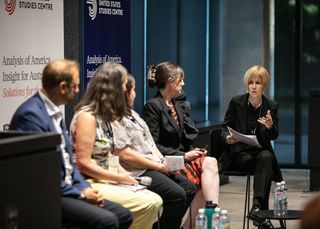
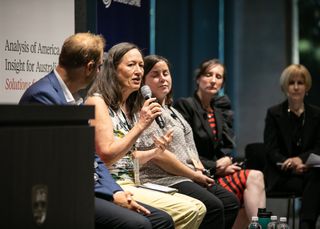

In front of an audience of leading private, public and academic sector leaders from the United States and Australia, the discussions touched on how climate technology innovation can be scaled internationally and the role governments can play in supporting climate entrepreneurs, particularly in the wake of the creation of the Australia-United States Climate, Critical Minerals and Clean Energy Transformation Compact in May 2023. Key themes from the discussion included:
- The current status and future of Australian climate policy, including the baseline credits scheme, Clean Energy Finance Corporation, National Reconstruction Fund, Australian Renewable Energy Agency (ARENA) and the A$3 billion New South Wales Hydrogen Strategy
- The next steps on processing critical minerals for the energy transition, agriculture, and sustainable aviation fuel
- How to mobilise private capital to fund renewable technology and build green supply chains, particularly in the context of recent Amazon and Microsoft investments in Australia
- The potentially game-changing impact of hydrogen innovation, as well as the transportation and logistics challenges that may hamper its adoption
- The importance of centring First Nations peoples in climate discussions, particularly considering climate change’s disproportionate impact on Indigenous communities
- The opportunities of state-to-state cooperation as local efforts outpace federal government action
- Best practices for building the social license for climate policy at a grassroots community level
- The potential for global cooperation on climate, both between governments and in partnership with the private sector
The United States Studies Centre regularly uses its convening power to broker international conversations to find solutions to issues facing the Australia-US alliance. With clean energy and technology forming a new “third pillar” to the alliance, there are increasing opportunities to share insights, find new connections and work together to realise these alliance objectives.
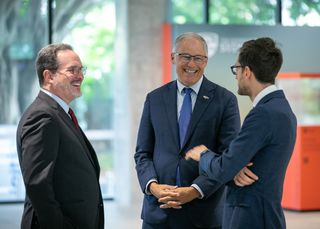
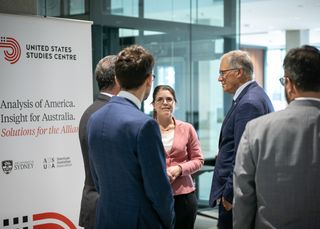

To request a meeting or briefing with the USSC, please email: ussc.media@sydney.edu.au.





